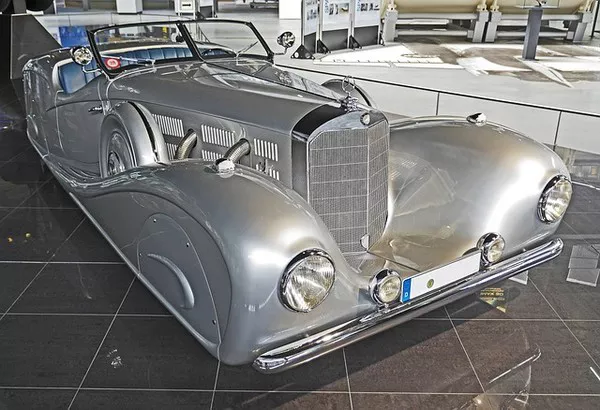Compressors are essential mechanical devices used to increase the pressure of gases or air. They find applications across a wide range of industries, from manufacturing and construction to healthcare and automotive. When considering the acquisition of a compressor, one of the primary concerns is the cost. However, determining the cost of a compressor is not a straightforward task, as it depends on various factors. This article delves into the intricate web of considerations that influence the cost of compressors, providing you with valuable insights to make informed decisions.
Factors Influencing Compressor Costs
The cost of a compressor can vary significantly based on several key factors. Understanding these factors is crucial for accurate budgeting and ensuring you choose the most suitable compressor for your needs:
1.Type of Compressor: Different types of compressors are available, each with its own set of advantages and disadvantages. Common types include reciprocating, rotary screw, centrifugal, and scroll compressors. The cost can vary depending on the efficiency, capacity, and complexity of the chosen type.
2. Capacity and Performance: The required capacity (cubic feet per minute or CFM) and performance specifications influence the cost of a compressor. Compressors with higher CFM ratings and enhanced performance capabilities tend to be more expensive.
3. Power Source: Compressors can be powered by electricity, diesel, gasoline, or natural gas. The power source impacts both the initial cost and the operational expenses over time.
4. Brand and Manufacturer: Established and reputable brands often come with a higher price tag due to their reliability, performance, and after-sales support. While they might be more expensive upfront, they can provide long-term value.
5. Quality and Durability: The build quality, materials used, and overall durability of the compressor affect its cost. Investing in a high-quality compressor can lead to fewer maintenance issues and a longer lifespan.
6. Features and Technology: Advanced features such as variable speed drives, energy-efficient technology, digital controls, and automation can contribute to higher costs. These features, however, might lead to significant energy savings and improved performance.
7. Application and Industry: The intended application and industry requirements play a significant role. For instance, compressors used in medical settings must adhere to strict safety and quality standards, potentially increasing costs.
8. Installation and Setup: Installation costs, including piping, wiring, and other auxiliary equipment, should also be factored in when estimating the total cost of a compressor.
9. Maintenance and Service: Regular maintenance is essential for optimal compressor performance. Some compressors might have lower initial costs but higher maintenance expenses, affecting the overall cost of ownership.
10. Location and Accessibility: If the compressor will be installed in a remote or hard-to-reach location, transportation and installation costs could be higher.
Cost Ranges for Different Types of Compressors
To provide a general overview, let’s examine the typical cost ranges for different types of compressors:
Reciprocating Compressors: These are typically the most affordable type of compressors, with costs ranging from a few hundred to a few thousand dollars, depending on capacity and brand.
Rotary Screw Compressors: These are mid-range compressors, with prices ranging from a few thousand to tens of thousands of dollars, depending on capacity, features, and brand.
Centrifugal Compressors: These are high-capacity compressors used in industrial settings, with costs ranging from tens of thousands to millions of dollars, depending on specifications and brand.
Scroll Compressors: These compressors are commonly used in smaller applications and have costs ranging from a few hundred to a few thousand dollars.
Calculating the Total Cost of Ownership (TCO)
It’s important to note that the upfront cost is just one component of the total cost of ownership (TCO). TCO takes into account the initial purchase price as well as the ongoing operational, maintenance, and energy costs over the compressor’s lifespan. A slightly higher upfront investment in a more efficient and reliable compressor can lead to substantial savings in the long run.
FAQs
1. Is a higher-priced compressor always better?
Not necessarily. While higher-priced compressors often come with advanced features and better performance, the key is to choose a compressor that meets your specific requirements. Conduct a thorough analysis of your needs, including capacity, efficiency, and application, to determine the optimal investment.
2. What role does energy efficiency play in compressor costs?
Energy efficiency is a critical factor in the cost of a compressor, as it affects operational expenses over time. While energy-efficient compressors might have a higher initial cost, they can significantly reduce your long-term energy bills, making them a cost-effective choice in the grand scheme.
3. Are maintenance costs a major consideration?
Yes, maintenance costs should be factored into your decision-making process. While some compressors have lower upfront costs, they might require more frequent maintenance, leading to higher operational expenses. It’s advisable to balance upfront costs with long-term maintenance needs.
4. How do I determine the right compressor capacity for my needs?
Assessing your required compressor capacity (CFM) involves understanding your application’s air demand. Factors such as the number of air-powered tools or machines, their air consumption rates, and peak demand periods play a role. Consult with experts or use online calculators provided by manufacturers to estimate your CFM needs accurately.
5. What financing options are available for purchasing compressors?
Many manufacturers and distributors offer financing options to help businesses acquire compressors without straining their budgets. These options might include leasing, installment plans, or equipment loans. It’s recommended to explore these options and choose the one that aligns with your financial strategy.
Conclusion
Purchasing a compressor involves a multifaceted decision-making process, with cost being a significant aspect. Understanding the factors that influence compressor costs, along with the importance of considering the total cost of ownership, empowers you to make well-informed choices. Remember that the right compressor is not merely the cheapest one, but the one that aligns with your needs, offers efficiency, reliability, and contributes to long-term cost savings. By conducting thorough research, assessing your specific requirements, and seeking advice from industry experts, you can navigate the compressor market with confidence and make a wise investment for your business’s success.

